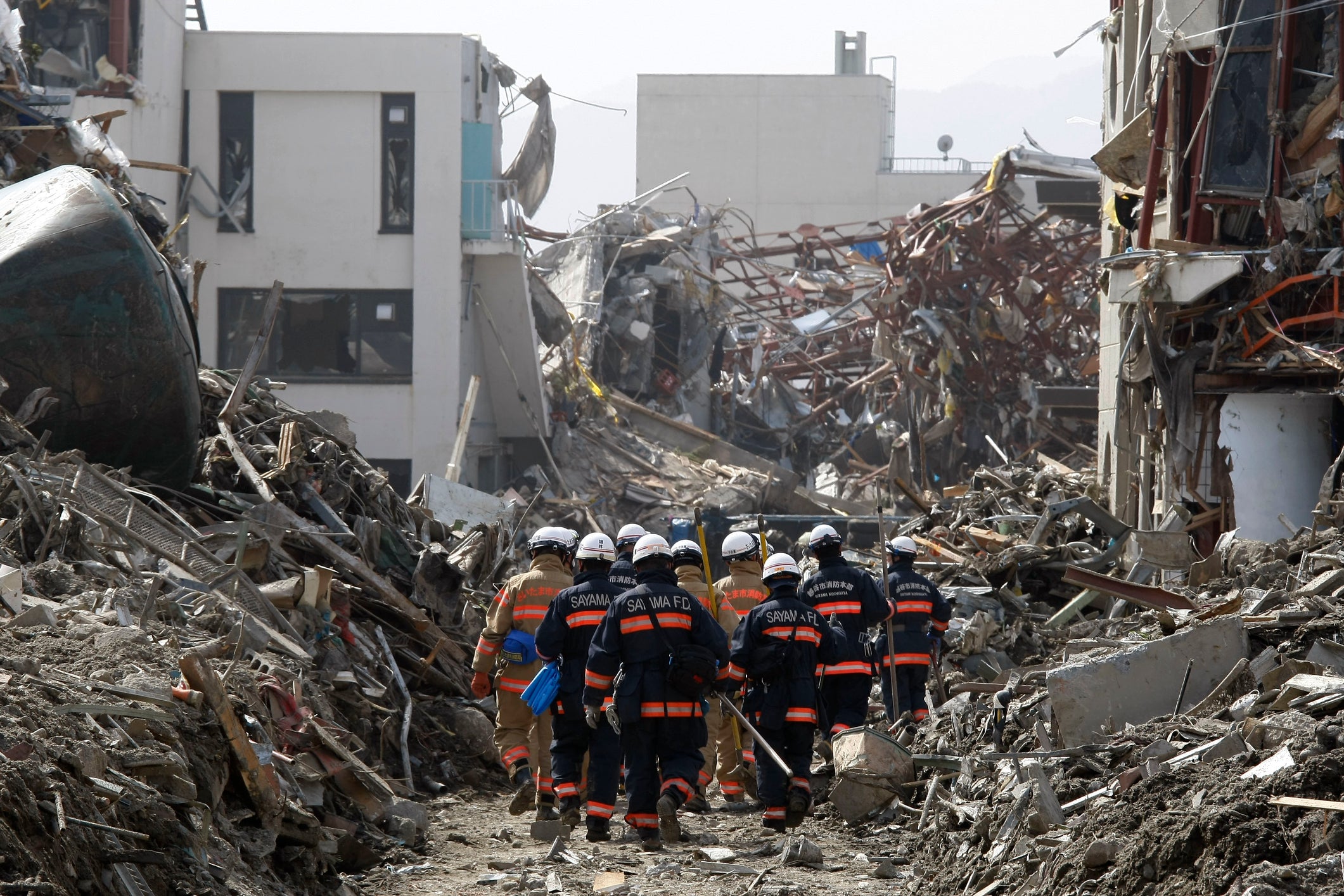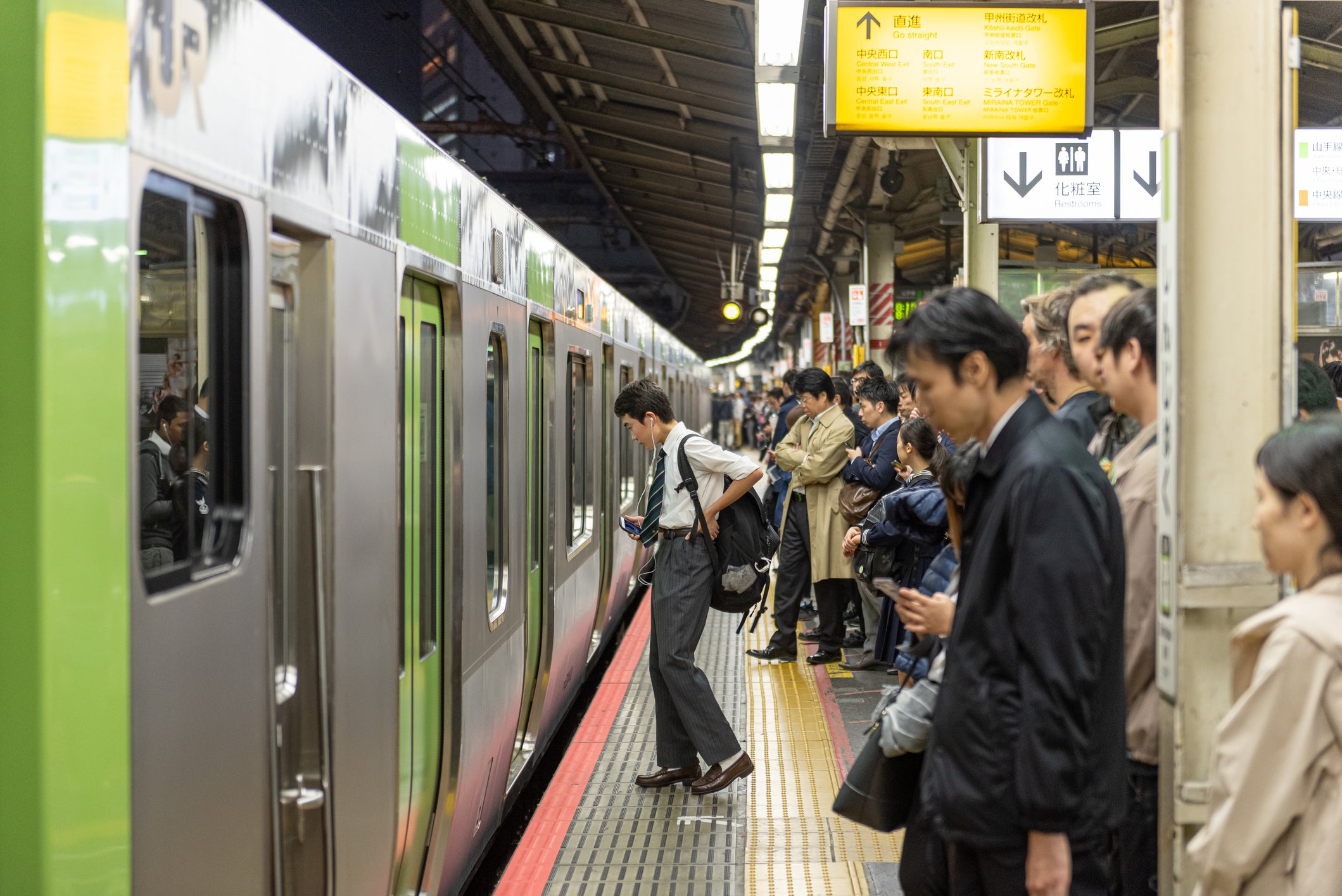How to choose and use disaster batteries
table of contents
Introduction
1. Why blackouts occur
1-1 Earthquake
1-2 Typhoon
1-3 thunder
1-4 Vehicle Collision
2. Effects of blackouts
2-1 Home appliances cannot be used
2-2 Traffic restrictions
2-3 Data corruption
3.Differences between power generators and emergency batteries during power outages
4. Difference between generator and portable capacitor
5. Points for choosing a portable charger for disasters
5-1 capacity size
5-2 Output magnitude
5-3 Large number of ports
5-4 Weight
6. Summary
Introduction
Disasters are unpredictable, and power outages and communication equipment failures can occur. In such a disaster, emergency batteries are extremely useful. In this article, we will explain how to choose and use a disaster battery, and the benefits of it, from the reasons why power outages occur.
1. Why blackouts occur
There are several main causes of power outages. I will explain how this factor leads to blackouts.
1-1 earthquake
Electric power facilities such as transmission lines, utility poles, substations, and power plants are damaged by earthquake shaking, often resulting in power outages. Earthquakes can cut power lines, topple utility poles, and damage substations and power plants. A cable in the basement may break and the electricity supply may stop.
In addition, power supply is interrupted by activation of protection mode to avoid secondary damage caused by earthquakes and electrical fires. Cuts in power lines, breakdowns in substations, etc. can prevent power from following its normal path, causing power outages in and around earthquake-prone areas. If the affected area is extensive, it may take a long time to restore power.
1-2 Typhoon
The main cause of power outages due to typhoons is damage caused by strong winds. The strong winds of a typhoon can directly affect power lines and utility poles. When strong winds cut power lines or knock down utility poles, the supply of electricity stops. Power equipment can also be damaged by collapsing trees and buildings.
In addition, if a typhoon is expected to approach or affect it, the power supply company may implement rolling blackouts in advance. Measures to control power demand and stabilize the power supply system. This rolling blackout will be announced as ``restriction of power supply for XX hours at XX time in XX area'', and the power will be adjusted.
1-3 lightning
When lightning strikes power lines, power lines, transformers, and other facilities that transmit electricity may be cut, causing power outages as power cannot be sent to households.
Also, be aware that power outages caused by lightning strikes can lead to malfunctions of electronic devices such as televisions.
1-4 vehicle collision
A traffic accident where a car collides with equipment such as a transformer that transmits electricity such as a utility pole or roadside equipment may also stop the electricity. A car collided with a transformer, causing a temporary power outage for about 15 million households (from Hiroshima TV News on May 3 , 2022 ).
In this way, power outages can be caused not only by natural disasters, but also by things like traffic accidents. It is possible to mitigate disasters in which power outages can be predicted by taking countermeasures against power outages, such as stockpiling. However, it is difficult to predict disasters such as earthquakes that cannot be predicted at any time, so it is necessary to prepare measures for power outages in advance.
2. Effects of blackouts
2 - 1 Home appliances cannot be used
Home appliances such as lighting, air conditioners, TVs, refrigerators, etc. will not work at all.
If there is a power outage at night, it will be difficult to secure light, and you will need a light such as a flashlight. If there is a power outage in the middle of summer, even if you try to turn on the air conditioner, you may get a heat stroke. Since the refrigerating and freezing functions of the refrigerator are lost, fresh and frozen foods become weak. Since the TV is not turned on, the situation of damage cannot be understood.
2-2 Traffic Restrictions
Power outages also affect traffic. You have to be careful about traffic accidents because the traffic lights will not play a role in maintenance. You need to be careful not only when driving a car or motorcycle, but also when walking as a pedestrian.
2-3 Data corruption
If there is a power outage while you are working on your PC , there is a risk that the data will not be saved, resulting in data corruption.
Since the above is an example, there are other implications as well.
3 . Differences between power generators and disaster batteries during power outages
As a countermeasure for the content of 2, it is possible to have a generator or a disaster battery at home. So I'll talk about this power outage usefulness and the difference between the two .
First of all, the usefulness of these is that you can live in the same way as before the power outage.
Generators and high-capacity batteries can send quite a lot of electricity, so there is almost no need to worry about home appliances. You can run things that use a lot of electricity, such as air conditioners and refrigerators, so you can live comfortably even during a power outage.
In the case of portable storage batteries, there are even models that automatically consider the electrical efficiency. It also plays a role other than disaster prevention by charging the battery when the electricity bill is low and supplying power from the battery when the electricity bill is high.
4. The difference between a generator and a portable battery
As for the difference between a generator and a portable storage battery, we will compare the output, usage time, weight, noise, and maintenance.
It is said that the “output” of the generator is often larger.
Because it runs on gasoline, it can produce a lot of power. Therefore, you can operate multiple electrical appliances at the same time. However, recently, portable storage batteries and products with high output have been released, so it is possible to run multiple electrical appliances without using a generator.
As for "usage time", the generator can be used longer.
The reason is that the fuel is gasoline, so as long as you have gasoline, you can make as much electricity as you want. A portable battery has a capacity, and when the capacity is empty, it cannot be used at all. However, some portable battery packs have large capacities. For example, there is a product from EcoFlow that can store 3,600 Wh. Furthermore, by connecting another battery to that battery, you can increase it up to 21600 Wh. It's hard to imagine this unit, but compared to the 20000mWh mobile battery I'm using, it's 1080 times the capacity. If you think about it this way, any home appliance can run for a long time.
As for "weight", the portable battery is said to be lighter.
Therefore, it is easy to carry in a house or a car, and it is possible to respond flexibly in the event of a disaster. Many generators are solidly made and heavy. However, Yamaha and Honda are also exhibiting products that are lighter in the 10 kg range.
"Noise" is quieter with the portable battery.
The portable power storage device has a low operating noise and is less noisy. The generator makes a lot of noise.
Cause 1 : Machine noise
When the generator is activated, the fuel burns inside the cylinder, and the burning impact vibrates the wall of the cylinder.
In addition to the cylinder, shock and vibration occurred in many places such as the fuel pump and piston.
The operating sound of this machine is the cause of the rather loud sound emitted.
Cause 2 : Exhaust noise
The exhaust gas emitted by operating the machine and the exhaust noise from the intake and exhaust that cools the machine are also causes of noise.
Sound is generated from the cylinder through which the smoke is discharged, but it is difficult to deal with it because it is expensive to install a silencer to suppress the sound.
(Quoted from Texel Saint "What are the effective measures to reduce generator noise?")
Therefore, when it comes to sound, there is a considerable difference between a generator and a portable battery.
"Maintenance" is easier with a portable capacitor.
Almost maintenance-free, just charge once every six months. The maintenance of the generator must be done once a month with the necessary items such as engine oil and gasoline, and it can be said that it is more difficult than the portable storage battery.
5 . Points to choose portable charging for disaster
First of all, we assume that you will evacuate for about 3 days during a disaster. The prime minister's official residence calls for stockpiling drinking water and emergency food for at least three days in case lifelines such as electricity, gas, and water stop, and stockpiles for at least one week in areas where there is a possibility of a large-scale earthquake such as a Tokai earthquake.
Therefore, think while imagining evacuation life for three days. Since there are products that will be used depending on the type of disaster and the season, it is important to have an image of what kind of electrical products you want to use in the event of a disaster.
5-1 capacity size
If you have a budget for the size of the capacity, it is important to choose the one with the largest capacity possible. Household outlets are 1500W , so if you want to use home appliances as usual, we recommend a portable battery that has more than 1500W . Products that need to be used for long periods of time, such as air conditioners, refrigerators, and TVs, consume a lot of power, so you need to be careful.
Depending on the portable power storage device, the capacity can be further increased with an optional battery.
5-2 output magnitude
Electric products have startup power and power consumption. What you have to be careful about here is the starting power.
For example, if you want to move a large refrigerator. This refrigerator has a power consumption of 500W . The portable power storage device I'm about to buy has a rated output of 800W , which gives me plenty of room. However, it is risky to make a purchase decision based on this alone. When I check how much the startup power is, there is something that requires 1000W . In this case, the refrigerator cannot be used. In addition, air conditioners and microwave ovens require a large amount of power to start up, so if you want to use those electrical appliances in the event of a disaster, we recommend that you thoroughly investigate them before considering them.
Rated output is the amount of power that can be stably sent to an electrical appliance. This rated output cannot be increased later, so consider it carefully.
5 - 3 Large number of ports
A port is something that you can plug into. There are products that can output not only from the AC output port (ordinary outlet), but also from the USB port, type C port, etc. Check how many people you have in your family and what type of output port the electrical equipment you will use in the event of a disaster corresponds to.
5-4 weight
When it comes to portable power storage with excellent capacity and output, the weight of the machine is relatively large. Therefore, it is necessary to choose according to the intended use. If you're evacuating at home, a good heavy portable charger is fine as you don't have to carry it around. However, when going to an evacuation facility or evacuating in a car, there is a high possibility that it will end up as luggage.
Make a decision by imagining the area where you live in an earthquake and what kind of electrical equipment you will need.
6. summary
Power outages during disasters are more inconvenient and stressful than you think. The author also experienced a power outage during Typhoon No. 15 in 2019 . It was so hot that night that I couldn't sleep without a cooler. I remember having a hard time because I had to take university entrance exams in a few days. I feel that if I had a portable storage battery or a generator, the damage would have been less.
Therefore, by doing disaster prevention, the damage of the disaster itself can be suppressed and a sense of security can be obtained. We sell various disaster prevention goods on this site, so let's all work on disaster prevention together.








